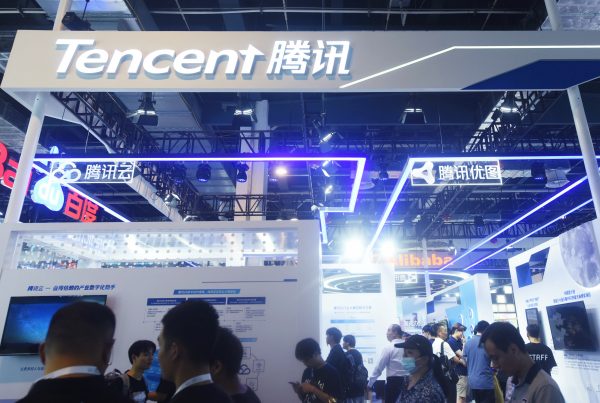Besides Ant Group, the ‘rectification’ affected most of China’s large platform companies. Yet by June 2023, a cold was blowing over China’s economy. The post-COVID-19 recovery was faltering. Youth unemployment rose above 21 per cent.
The authorities also likely concluded that they had accomplished most of the objectives of the rectification. At the China Development Forum in March 2023, Premier Li Qiang bent over backwards to assure prominent Western CEOs that China was welcoming the private sector, both foreign and domestic.
There is no consensus among academic and journalistic commentators about the crackdown’s ‘true’ objectives. One view holds that it was a personality clash between the ‘exuberance’ of Jack Ma — Alibaba’s founder and China’s most prominent private entrepreneur — and the fundamentally Maoist orientation of President Xi Jinping.
But a focus on Jack Ma ignores the fact that essentially all platform companies underwent some form of rectification. Another view holds that it was simply a scheme to clip the wings of China’s top private companies, given Xi Jinping’s embrace of the state-owned sector. Yet data showing an increasing penetration of China’s economy by large private companies belied Xi Jinping’s alleged hostility to the private sector.
Others maintain that a ‘great’ rectification was needed to align the mission of platform tech companies with Xi Jinping’s social policy objectives such as ‘common prosperity’ and the drive against ‘disorderly expansion of capital’. But the true objective of the crackdown had little to do with regulation, as authorities’ actions went beyond what might be considered an imposition of a stricter regulation.
Regulatory rectification was only a vehicle to accomplish other objectives. The crackdown was characterised by a spate of shareholder wealth destruction. Ant Group was headed for its IPO in November 2020 at an implied valuation of US$313 billion. Yet in July 2023, Ant Group launched a share buyback at a valuation that was 70 per cent lower. The global ride-sharing leader, Didi Chuxing, conducted its New York IPO in June 2021 at a valuation of US$70 billion. After a forced delisting from the New York Stock Exchange, it is currently trading over the counter with a market capitalisation of about US$16.7 billion.
The other side of the coin was the wealth extraction from platform companies to various state-owned entities. One instrument of extraction was in the form of unprecedented fines. Alibaba was fined US$2.8 billion in April 2021 for alleged abuse of market dominance.
Another method of extraction was through ‘voluntary’ contributions to causes championed by Xi Jinping. Tencent — the global game leader and investor in many start-ups — ‘earmarked’ US$7.7 billion in 2021 to a fund dedicated to ‘common prosperity’.
Another extraction mechanism was carried out through putting a brake on platform companies’ ability to grow. Didi was barred from registering new users for 18 months. This conveniently opened a market window for several of Didi’s state-backed competitors such as Huawei Technologies of T3 Chuxing.
A major effect of the crackdown has been a fundamental change in corporate governance. Platform tech companies have been forced into appointing state-nominated directors and issuing ‘golden shares’ in subsidiary companies to state-owned enterprises under joint venture partnerships. Such golden shares amount typically to only about 1 per cent of a subsidiary’s equity. But they bestow disproportionate corporate governance rights upon the minority shareholders. The state has acquired veto power over strategic decisions in those companies.
Probably the most momentous corporate governance upheaval was the defenestration of Jack Ma — the symbol of China’s entrepreneurial success. Jack Ma was effectively banished upon the cancellation of Ant Group’s IPO. The company was subjected to a share reshuffling which shrank Jack Ma’s voting rights from over 50 per cent to 6.2 per cent.
Platform companies have survived the regulatory crackdown. But they do so at the price of an irreversible change in their business models. Before November 2020, those companies were very different from most of China’s large private companies. Their business model at that time could be described as ‘entrepreneurial’ — completely private, backed by world-class venture capital and guided by entrepreneurial leaders dedicated to shareholder value maximisation.
This entrepreneurial business model has now been extinguished. Instead, these firms must align with other large private Chinese companies which tend to be intertwined with the state. This ensures significant state influence over the private sector.
The business model upheaval has also fuelled a massive blow to sentiment in China’s private sector. For a Chinese private company owner, it is difficult to feel upbeat if the authorities can deprive a top private entrepreneur — such as Jack Ma — of control rights over the company he or she has founded.
Sentiment might improve in the future. But for the time being, the regulatory crackdown will remain a major contributor to China’s stumbling macroeconomic performance.
Martin Miszerak is Visiting Lecturer at Renmin Business School, Renmin University, Beijing.

